Did you know global trade volumes have dropped by 8% since last year? This stunning decline, triggered by a wave of new tariffs, port fees, and export controls, is reshaping nearly every industry—from tech giants relying on rare earths to local manufacturers navigating tightening supply chains. In this rapidly shifting landscape, keeping up with the latest trade war updates is crucial for anyone invested in the global economy. In today’s opinion-driven overview, we cut through the noise to bring you the most urgent facts, unexpected twists, and strategic moves shaping global commerce—and we’ll show you how to adapt before the next round of policy changes hits your bottom line.
A Shifting Global Economy: Trade War Updates in 2024
The global economic environment is transforming at an unprecedented pace, with 2024 marking a pivotal year in the ongoing saga of trade war updates. The escalation of tariffs, the recalibration of export controls, and the strategic maneuvering by powerhouses like China, the United States, and South Korea are blurring the boundaries between economics and national security more than ever before. For anyone watching closely, the latest trade war updates reveal not just isolated events, but a sweeping shift in how markets operate and how companies must respond to survive.
At the heart of these changes are increasingly sophisticated trade policies and the growing importance of rare earths, which have evolved from obscure commodities into strategic bargaining chips in global trade talks. The fierce debate around port fees, the ripple effects of new tariffs on Chinese goods, and escalating rhetoric from leaders such as xi jinping and donald trump have all contributed to a climate where unpredictability is the only constant. What does this mean for businesses and consumers? The answer is clear: real-time awareness and adaptability are no longer optional. This section dives into today’s most pressing updates and offers practical advice for navigating this complex new world.

- What You'll Learn about Trade War Updates:
- Latest statistics and facts behind ongoing trade war updates
- Impact of rare earths policy changes
- Key figures driving trade war discussions (xi jinping, donald trump, and more)
- Export control and its implications for manufacturers
- Strategic moves from major economies like China, the US, and South Korea
- National security and global trade war updates
- How businesses can adapt
Trade War Updates: Startling Facts and Recent Developments
"With global trade volumes falling by 8% since last year, businesses can’t afford to ignore today’s trade war updates."
This past year has brought a whirlwind of unpredictable trade war updates: tariffs have been increased and diversified, port fees surged in major hubs, and new export controls have added a maze of regulatory obstacles for companies worldwide. In 2024 alone, the United States and China have traded barbs over critical strategic goods, particularly in high-tech and manufacturing sectors, with rare earths taking center stage like never before. The battle over access to these materials—vital for everything from smartphones to AI chips—has resulted in tighter export control policies, stoking further volatility in the global economy.
Key players driving these developments include xi jinping, who has doubled down on protecting Chinese economic interests, and a White House that continues to review—and sometimes intensify—legacy Trump-era sanctions. Effects are rippling through Asian and European manufacturing, with export controls contributing to price shocks and disrupted supply chains. For anyone managing international logistics, staying current with port fee adjustments and understanding strategic moves around trade deals has never been more important. Rare earths volatility alone has made previous price stability a thing of the past, and has forced everyone—from procurement directors to investors—to recalibrate their risk models and sourcing strategies.
- Recent changes in tariffs and port fees
- Export controls on strategic goods
- Major moves by Chinese leader xi jinping and the White House
- Effects on rare earths markets
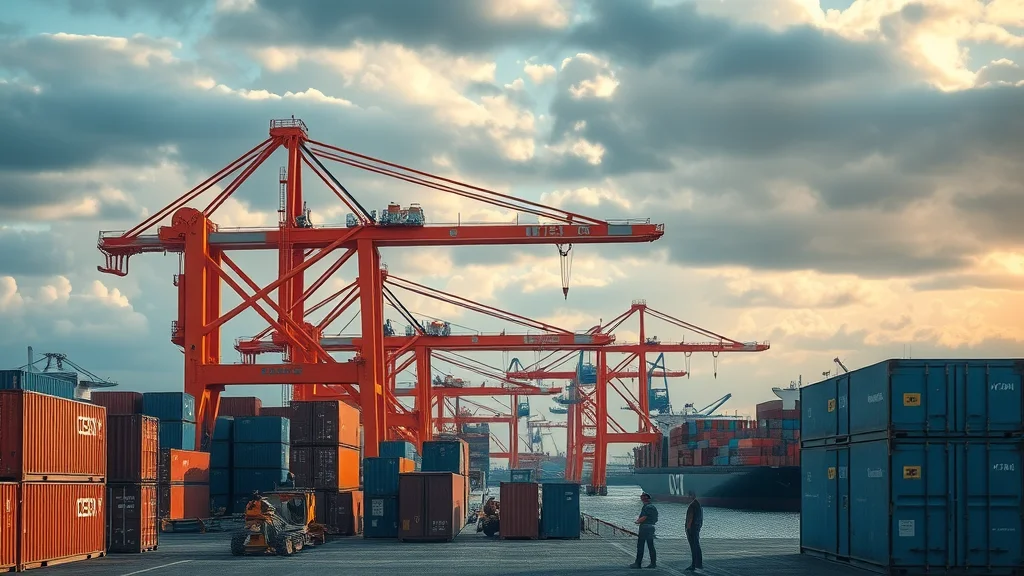
Trade War Updates: The Role of Rare Earth and Export Controls
Rare Earths in Trade War Updates: Policy, Supply Chains, and Global Markets
Rare earths have become the flashpoint of contemporary trade war updates, making headlines as nations scramble to secure vital tech supply chains. China, led by xi jinping, holds overwhelming dominance in rare earth mining and processing, which gives it a strategic lever over the United States and its allies. Recent export control directives from Beijing have further intensified tensions, as stricter licensing requirements and export bans on select rare earths disrupt the sourcing strategies of American and South Korean manufacturers. For the U.S., these tightening measures spell trouble for industries reliant on rare earth-dependent products like AI chips, batteries, and aerospace components.
South Korea, meanwhile, finds itself in a delicate position, as it relies heavily on both Chinese supply and partnership with Western tech leaders. The rare earth policies announced in this latest round of trade war updates have forced South Korean firms to rethink sourcing, diversify imports, and form new alliances with suppliers in Australia and Southeast Asia. In just a few years, rare earths have shifted from niche resources to hot-button issues—where policy disputes have almost immediate consequences for technology, automotive, and renewable energy markets worldwide.
- China’s rare earth export control strategies
- The domino effect on U.S. manufacturing and technology
- South Korea’s position on rare earth supply
- How rare earths became a trade war flashpoint
| Country | Policy Changes (2024) | Impact Area | Key Sectors Affected |
|---|---|---|---|
| China | New export licensing, quota reductions | Supply chain bottlenecks | AI chips, EVs, military tech |
| United States | Countervailing tariffs, increased stockpiling | Price inflation, diversification | Defense, tech hardware |
| South Korea | Import diversification, local R&D boosts | Sourcing agility | Electronics, batteries |
| Australia & Others | Production ramp-ups, incentives | Supply chain stability | Clean energy, automotive |

Trade War Updates: Spotlight on Key Leaders and Their Policies
Xi Jinping, Donald Trump, and President Xi: Navigating the Trade War
The interplay between xi jinping and donald trump set the tone for the ongoing trade war updates, and their respective successors have kept those fires burning. President Xi Jinping’s recent addresses have emphasized China’s readiness to “use all necessary measures” to defend national interests, signaling ongoing commitment to assertive export controls and countermeasures. His approach, blending assertive diplomacy with economic pressure, has changed the calculus for multinationals, investors, and anyone reliant on Chinese goods or technology.
The legacy of Trump’s tariffs and aggressive negotiation tactics still haunts global markets, as periodic adjustments keep uncertainty high for sectors like pharmaceuticals, electronics, and agriculture. Continued trade talks and policy tweaks by the White House mean that companies cannot take a “set-it-and-forget-it” approach. Instead, they must monitor evolving statements from Chinese president Xi Jinping and their U.S. counterparts. These high-level exchanges move markets, disrupt shipping lanes, and drive rapid changes in export control regimes, ultimately affecting everything from consumer electronics pricing to the strategic posture of the United States in global affairs.
- Xi Jinping’s latest addresses regarding export controls
- Trump and Xi: Remnants of their trade policies in current updates
- Statements from Chinese president and White House representatives
"President Xi Jinping emphasized that China will use all necessary measures to protect its economic interests amid ongoing trade war updates."
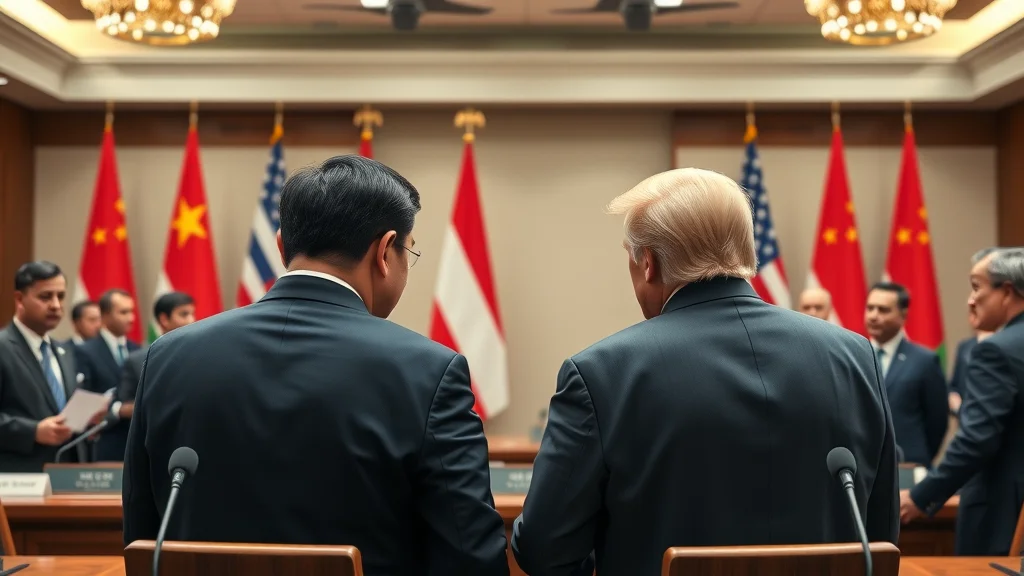
Trade War Updates: Timeline of Major Events
- Initiation of current trade talks between China and the US
- Introduction of tariffs under the Trump administration
- Implementation of export controls on strategic Chinese goods
- Recent port fees and changes to international shipping
- Key trade deal negotiations affecting rare earths
| Year | Major Update | Impacted Regions | Key Policy Actors |
|---|---|---|---|
| 2018 | Trump administration initiates China tariffs | US, China | Donald Trump, US Trade Rep |
| 2019 | First export controls on Chinese tech | Global | Xi Jinping, Commerce Dept. |
| 2020 | COVID-19-related supply chain shocks | Worldwide | White House, Chinese leaders |
| 2022 | Rare earth strategies intensify; South Korea pivots | Asia, US | President Xi, Korean Trade Min. |
| 2024 | Escalating port fees, new export controls | Global | US Fed, China MoC |
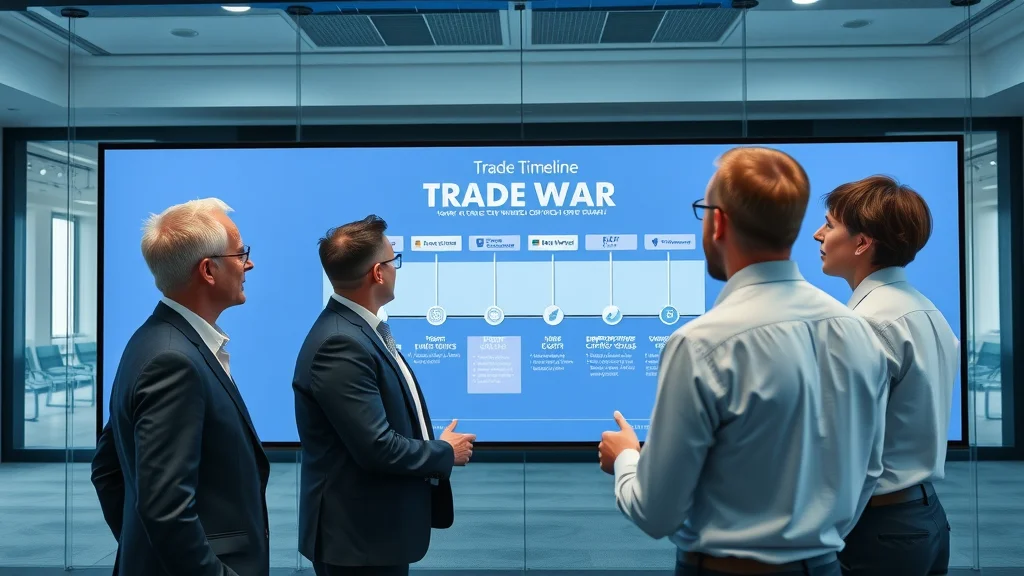
Trade War Updates: The South Korea Factor
How South Korea Navigates Trade War Policies
South Korea has become a pivotal player in the evolving landscape of trade war updates, leveraging its advanced electronics and automotive industries while carefully balancing interests between China—its dominant trade partner—and the United States, a key security ally. As export controls on rare earths tighten, South Korean policymakers have moved swiftly to safeguard industry by encouraging R&D, creating stockpiles, and seeking new international supply agreements. This strategic flexibility is crucial in a climate where sudden policy changes by either Beijing or Washington can cascade through local production lines and global value chains.
Major sectors like semiconductors, batteries, and car manufacturing are directly affected by shifts in rare earth supply and port fee structures. By carefully monitoring trade talks, making adaptive sourcing changes, and investing in domestic production capabilities, South Korea has managed to deflect some of the most severe shocks of the current trade war. Their proactive approach serves as a bellwether for other export-oriented economies—and a warning sign for companies overly dependent on any single source of critical materials or market access.
- South Korea’s balancing act between China and the US
- Impacts on key industries: electronics, automotive, and manufacturing
- Rare earth import strategies amid tightening export controls
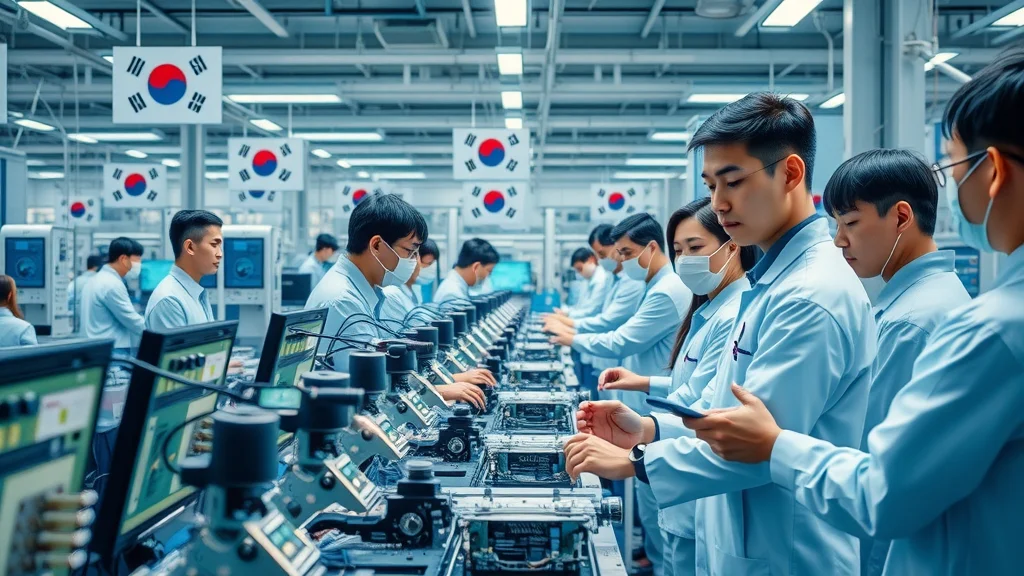
Trade War Updates: Export Controls and National Security
National Security Strategies: From White House Policy to Chinese Response
National security considerations have propelled export controls into the spotlight as policymakers weigh economic risks against threats in technology and defense. The United States has progressively tightened restrictions on high-tech chinese goods, citing concerns about AI chips, dual-use technologies, and critical infrastructure. This evolution—spanning from Trump-era directives to Biden administration enforcement—reflects a bipartisan view that economic leverage is a crucial tool for maintaining global influence and security.
China’s response, led by President Xi Jinping and key economic officials, has been twofold: imposing their own set of reciprocal export controls, and accelerating domestic R&D in strategic industries like AI, aerospace, and advanced electronics. The result is an ongoing policy arms race, as each side seeks to limit vulnerabilities and assert autonomy over supply chains. Beyond direct economic costs, these moves reverberate through the tech sector, disrupt multinational business plans, and contribute to the underlying unease now defining the global business climate.
- Evolution of US export controls on Chinese goods
- Chinese leader responses to escalating sanctions
- Implications for global tech and defense industries
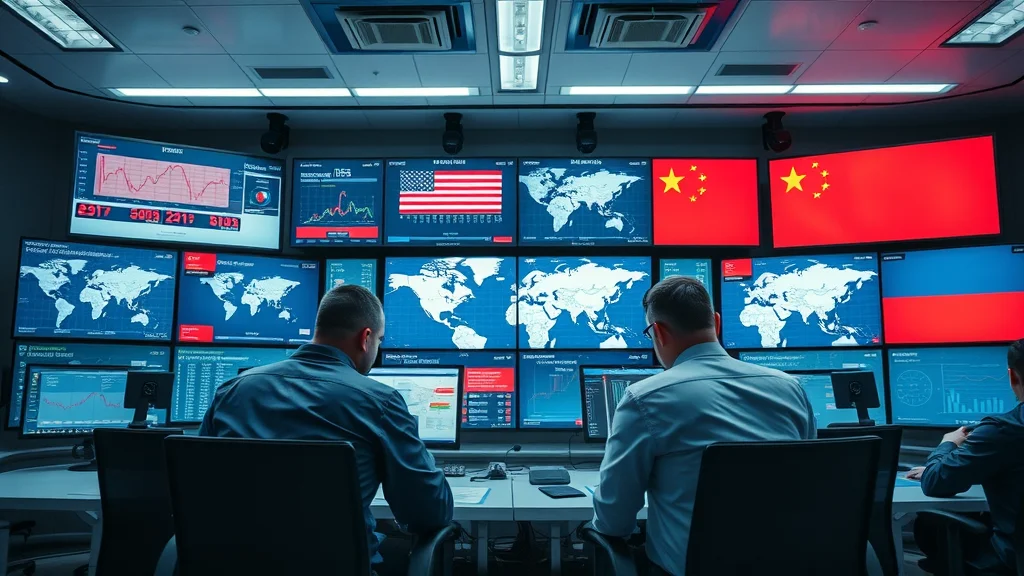
Trade War Updates: Impact on Manufacturers and Global Supply Chains
Supply Chain Reshoring, Tariff Strategies, and the Future of Manufacturing
Manufacturers are feeling the pressure of trade war updates perhaps more than any other group. Facing rapidly changing tariffs, fluctuating port fees, and widespread supply chain disruptions, businesses have initiated a wave of responses. Some are accelerating reshoring—moving production home to reduce vulnerability to future trade volatility. Others are doubling down on diversification, developing “China-plus-one” strategies and sourcing critical inputs from alternative regions to offset risk. These trends are redefining manufacturing geography, impacting cost structures, and forcing companies to rebuild supply networks with flexibility in mind.
At the same time, sectors such as electronics, automotive, and consumer goods remain at risk due to their heavy reliance on rare earths and other strategic materials. Increased port fees and frequent changes to trade deals require real-time monitoring and nimble response plans, or companies risk being caught flat-footed in the next round of export control battles. The future of global manufacturing will belong to those who adopt resilient strategies, embrace digital transformation for better visibility, and maintain agile sourcing and logistics practices.
- Manufacturer responses to shifting trade war fronts
- Tariffs, supply chain disruptions, and port fee increases
- Reshoring as a protection against future trade volatility
| Sector | Main Risks | Response Strategies | Export Control Exposure |
|---|---|---|---|
| Technology | Rare earth shortages, tariffs on AI chips | Supplier diversification, R&D | High |
| Automotive | Component cost surges, port delays | Reshoring, alternate supply chains | Medium |
| Consumer Electronics | Export control disruption, high port fees | Flexible contracts, regional hubs | High |
| Defense & Aerospace | Sanctions volatility, supplier constraints | Stockpiling, tech alliances | Very High |
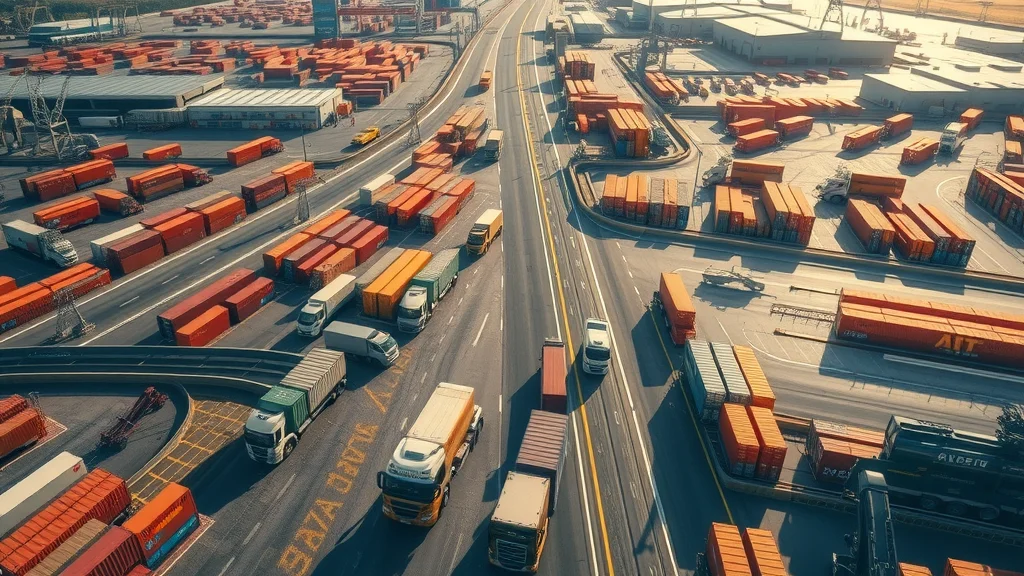
Trade War Updates: Stock Markets, Investment, and Economic Uncertainty
Will the Trade War Affect the Stock Market?
Few areas react more quickly to trade war updates than the stock market. Recent geopolitical announcements, such as sudden export controls on rare earths or the rollout of new port fees, have caused sharp swings in equity prices. Market analysts are now virtually unanimous in identifying trade policy as a leading factor driving short-term volatility, particularly in sectors tied to global supply chains and technology. Notably, as trade talk intensifies between Washington and Beijing, share prices of companies exposed to rare earth supply or tariff risk often see double-digit fluctuations within days.
In the rare earth sector, investor sentiment can shift overnight on the back of export control rumors or updates to U.S.-China trade deals. These changes not only affect direct participants but also ripple through related industries—think chipmakers, renewable energy firms, or manufacturers with global footprints. As the economic chess match continues, the smart money is on vigilant investment strategies and broad risk hedging, especially for those tied to high-profile trade war flashpoints.
- Recent stock market volatility linked to trade war announcements
- Investment flows and rare earths sector performance
- Export restrictions impact on market confidence
"Market analysts say trade war updates are now the single biggest factor driving short-term volatility."
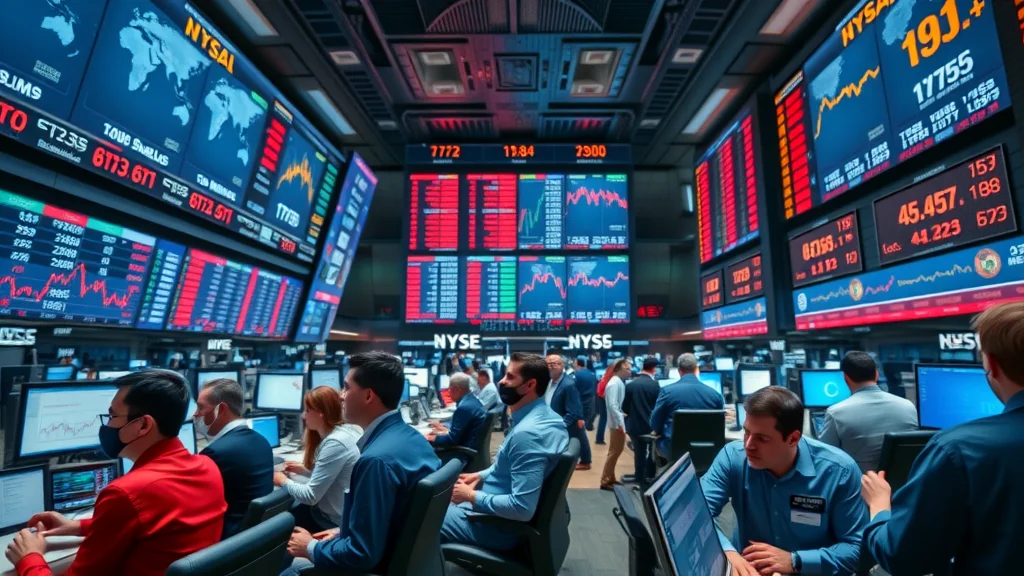
Trade War Updates: What Businesses Need to Know Now
- Proactive risk management strategies
- How to monitor new tariffs, export controls, and trade deals
- Adaptive sourcing: lessons from South Korea and beyond
Every business, regardless of size, needs to be acutely cognizant of ongoing trade war updates. The days when global trade moved at a leisurely pace are long gone—new tariffs, evolving export controls, and rapidly shifting trade deals can make or break quarterly forecasts. Successful managers are building agile risk management strategies that include frequent scenario planning, investment in compliance technologies, and direct engagement with diverse suppliers to avoid bottlenecks.
Drawing lessons from South Korea’s agile response and from multinational corporations that have weathered previous storms, it becomes clear: monitoring developments is not enough. Proactive adaptation—whether through reshoring, robust digital supply chain analytics, or bolstered local R&D—is now essential to maintain competitiveness. By integrating these lessons, businesses can not only survive but thrive in a world defined by non-stop trade war updates.
Watch: Trade Experts Analyze Current Trade War Updates and Rare Earth Implications
People Also Ask About Trade War Updates
What is the recent trade war?
The recent trade war refers to the ongoing economic conflict between major economies such as the US, China, and others, characterized by tariffs, export controls, and trade restrictions in areas like rare earths, high-tech goods, and agricultural products.
Will a trade war affect the stock market?
Yes, market analysts and investors closely monitor trade war updates as changes in tariffs, export controls, and international negotiations can cause notable swings in stock prices and overall market volatility.
Are Trump's tariffs still in effect?
Some of the Trump-era tariffs, especially those on Chinese goods and certain rare earths, remain in effect, although recent trade war updates suggest ongoing negotiations and periodic adjustments by current leadership.
Is China a threat to the US right now?
Trade war updates indicate that the US views China as a strategic competitor, with ongoing concerns about national security, technology transfer, and supply chain reliance informing continued tariff and export control measures.
FAQs: Trade War Updates
-
Which industries are most vulnerable in the current trade war?
Technology, automotive, and consumer electronics sectors face significant risks due to their reliance on imported components, rare earths, and exposure to tariffs and export controls. -
How do recent rare earth export controls affect electronics manufacturing?
Tighter controls can lead to shortages, price increases, and production delays for electronics manufacturers who depend on these critical materials for semiconductors, batteries, and devices. -
What steps are being taken to secure critical supply chains?
Companies and governments are investing in alternative suppliers, developing local processing facilities, building strategic reserves, and enhancing digital supply chain monitoring. -
How do trade war updates impact consumers at home?
Consumers may see higher prices, longer delivery times, or limited availability of products ranging from smartphones to cars, as supply chain disruptions and tariffs are passed on by businesses.

Key Takeaways from Today’s Trade War Updates
- The global trade war remains in flux, requiring constant attention to updates and regulatory shifts
- Rare earths, export controls, and port fees are now key levers in economic strategy
- Manufacturers, consumers, and investors must stay informed to mitigate risks
Conclusion: Navigating the Future with Reliable Trade War Updates
"Adaptability, vigilance, and up-to-date information are now essential for success in a world shaped by constant trade war updates."
Don't Miss Out: Subscribe for Critical Trade War Updates
- Manufacturer don't miss out! Stay informed on global trade shifts—tariffs, reshoring, and supply chain updates could reshape your strategy. Subscribe to Global Trade News for Latest updates. Call 203-271-7991 today.
See how rare earth and export controls are impacting industry leaders in real time.
Recent developments in the ongoing trade tensions between the United States and China have led to significant policy shifts and agreements. Notably, President Donald Trump and Chinese President Xi Jinping have agreed to a 12-month suspension of reciprocal port fees, aiming to reduce costs and stabilize maritime operations. (reuters.com) Additionally, the U.S. has reduced tariffs on Chinese goods, with China committing to substantial purchases of American soybeans, signaling a potential easing of trade disputes. (apnews.com) However, the U.S. Trade Representative has initiated an investigation into China’s compliance with the 2020 “Phase One” trade agreement, highlighting ongoing concerns about trade practices. (reuters.com) These developments underscore the dynamic nature of global trade relations and the importance of staying informed about policy changes that may impact various industries.
Key Updates on U.S.-China Trade Relations:
- Trump, Xi agree to pause dueling port fees that disrupted trade, Published on Thursday, October 30
- Trump cuts tariffs on China after meeting Xi in South Korea, Published on Wednesday, October 29
- US launches investigation into China’s compliance with 2020 trade deal, Published on Friday, October 24
 Add Row
Add Row  Add
Add 




Write A Comment